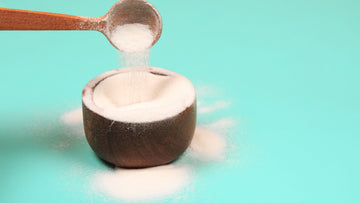
For many people, caffeine is a daily necessity—a comforting ritual to kick-start their morning or provide a much-needed energy boost. But for those trying to conceive, it’s worth taking a closer look at how caffeine consumption might be affecting fertility. Research suggests that caffeine, while socially ubiquitous, may influence reproductive health in both men and women. This blog will delve into the science, potential risks, and practical tips for navigating caffeine consumption on your fertility journey.
The Connection Between Caffeine and Female Fertility
Caffeine is a stimulant that can affect hormonal balance, blood flow, and the body’s stress response—all of which are critical factors in fertility. While moderate consumption of caffeine may not drastically reduce fertility for everyone, several studies have shown that high levels of caffeine intake can interfere with a woman’s ability to conceive.
-
Delayed Conception
Studies have linked high caffeine consumption to delayed conception. According to research published in the American Journal of Epidemiology, women who consumed more than 300mg of caffeine daily (roughly 2-3 cups of coffee) were 27% less likely to conceive within a year compared to those who consumed little or no caffeine. The mechanisms behind this are thought to include reduced blood flow to the uterus and hormonal disruptions that can affect ovulation. -
Increased Risk of Miscarriage
Caffeine has been associated with an increased risk of early pregnancy loss. The American Journal of Obstetrics and Gynecology published a study indicating that women who consumed more than 200mg of caffeine daily during pregnancy were at a higher risk of miscarriage. Caffeine crosses the placenta, and since the fetus cannot metabolise it effectively, it may accumulate in the body and lead to complications. -
Hormonal Disruption
Caffeine consumption has been shown to interfere with estrogen levels. Elevated estrogen levels, particularly in women with hormonal imbalances like polycystic ovary syndrome (PCOS), can further hinder fertility.
Caffeine and Male Fertility
The impact of caffeine on male fertility is less frequently discussed, but it’s equally important. Sperm health—measured in terms of count, motility (movement), and morphology (shape)—can be influenced by lifestyle factors, including caffeine consumption.
-
Lower Sperm Count and Quality
Research from the Journal of Human Reproductive Sciences found that men who consumed more than three cups of coffee daily had reduced sperm concentration and motility. Excessive caffeine consumption may damage sperm DNA, reducing its ability to successfully fertilise an egg. -
Oxidative Stress
Caffeine has been linked to increased oxidative stress in the body. Oxidative stress occurs when free radicals outnumber antioxidants, leading to cell damage. For men, this can impair sperm function and decrease fertility potential. -
Testosterone Levels
Some studies suggest that caffeine may temporarily boost testosterone levels, but excessive intake can lead to hormonal imbalances that negatively impact fertility.
Decaf Coffee: Is It a Safer Option?
For individuals trying to conceive, switching to decaf coffee might seem like an obvious solution. However, decaf isn’t entirely free of caffeine—it typically contains around 2-5mg per cup. While this amount is much lower than regular coffee, it can still contribute to cumulative caffeine intake, especially if consumed in large quantities. Moreover, the chemical processes used to decaffeinate coffee often involve solvents like methylene chloride, which some health experts advise against.
How Much Caffeine is Safe When Trying to Conceive?
Health authorities like the American College of Obstetricians and Gynecologists (ACOG) recommend limiting caffeine intake to 200mg or less per day when trying to conceive or during pregnancy. This is equivalent to roughly one 12-ounce cup of coffee. However, individual sensitivity to caffeine varies, and for some people, even moderate amounts can have noticeable effects on their fertility and overall well-being.
Caffeine-Free Alternatives to Support Fertility
If you’re considering reducing or eliminating caffeine from your diet, there are plenty of nourishing alternatives that can provide comfort and energy without compromising your health.
-
Herbal Coffee Substitutes
Products like Not Coffee are designed to replicate the ritual, taste, and experience of coffee without the caffeine. Made from wholesome ingredients like chicory root and organic carob, they offer a naturally rich and bold flavour while supporting overall well-being. -
Herbal Teas
Teas like rooibos, peppermint, and chamomile are naturally caffeine-free and packed with antioxidants. Rooibos, in particular, is known for its calming properties and its ability to support digestion and reduce inflammation. -
Golden Milk
A blend of turmeric, ginger, and warm milk or dairy-free alternatives, golden milk is a comforting and anti-inflammatory drink that can support hormonal balance. -
Hydration Boosters
Staying hydrated is essential for fertility. Infused water with fruits and herbs can be a refreshing and healthful alternative to caffeinated beverages.
Tips for Reducing Caffeine Intake
If you’re ready to cut back on caffeine but aren’t sure where to start, here are some practical tips:
-
Taper Gradually
Quitting caffeine cold turkey can lead to withdrawal symptoms like headaches, fatigue, and irritability. Gradually reduce your intake over a week or two to ease the transition. -
Switch to Half-Caffeinated Options
Start by mixing regular coffee with decaf to lower your caffeine consumption while still enjoying your morning ritual. -
Find a New Routine
Replace your coffee habit with a new ritual, like brewing a herbal coffee substitute or enjoying a calming tea. -
Stay Hydrated
Drink plenty of water throughout the day to reduce fatigue and maintain focus without relying on caffeine.
Why Going Caffeine-Free is Worth It
Reducing or eliminating caffeine from your diet may not only improve your fertility but also bring a host of other health benefits. These include better sleep, reduced anxiety, improved digestion, and more stable energy levels throughout the day.
Making the switch to a caffeine-free lifestyle doesn’t mean giving up the joy of your daily rituals. With thoughtful alternatives like Not Coffee, you can still enjoy the comforting flavours and experiences you love—while prioritising your health and fertility.
Final Thoughts
While caffeine is a beloved part of many people’s lives, it’s important to weigh its potential impact on fertility, especially when trying to conceive. By understanding the science behind caffeine’s effects and exploring healthier alternatives, you can take meaningful steps toward improving your reproductive health and overall well-being.





